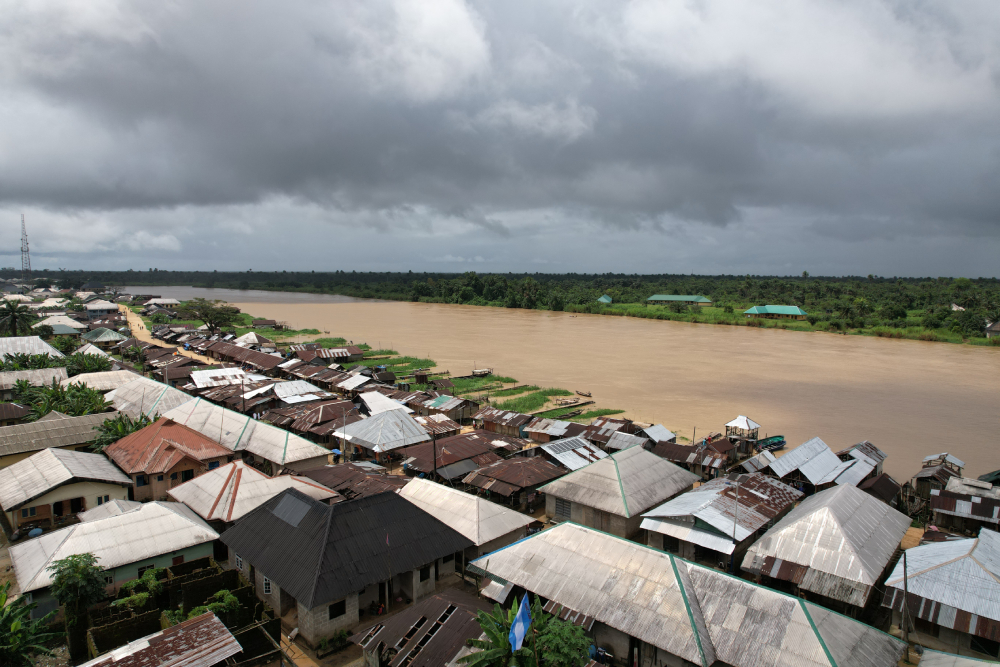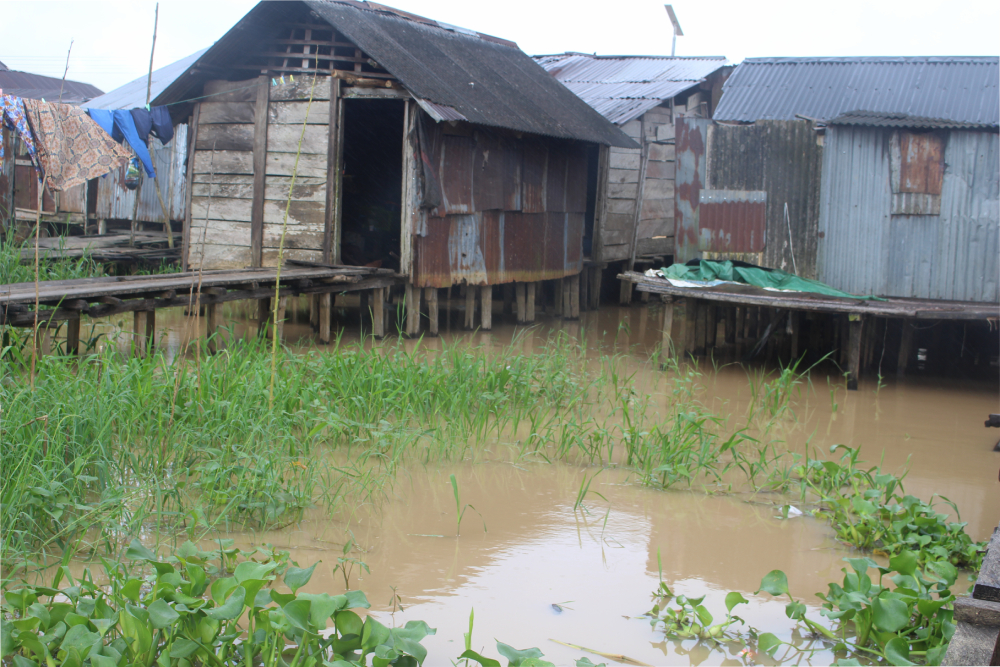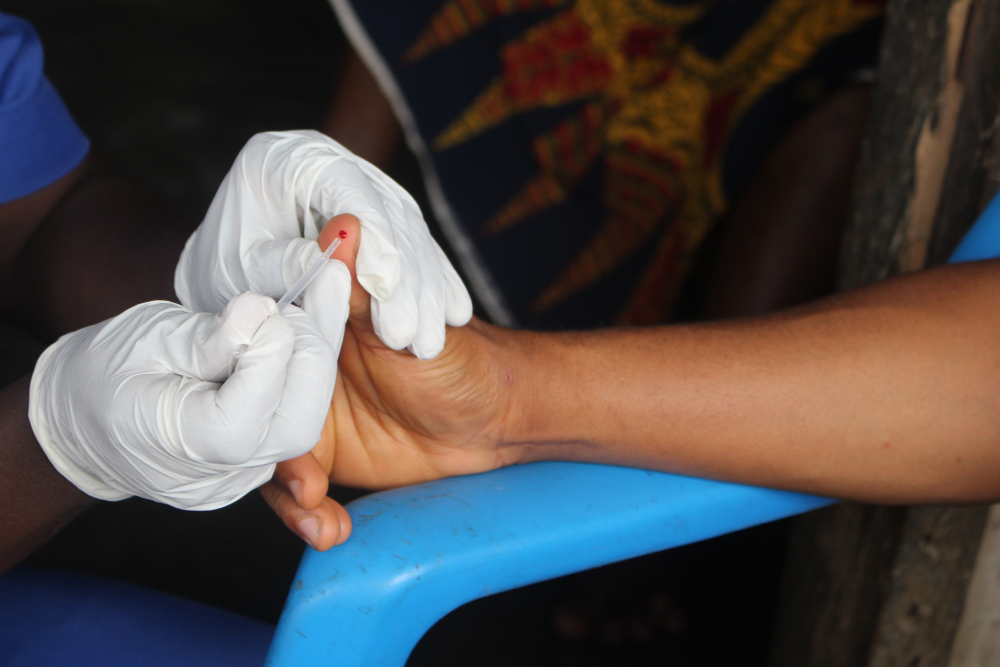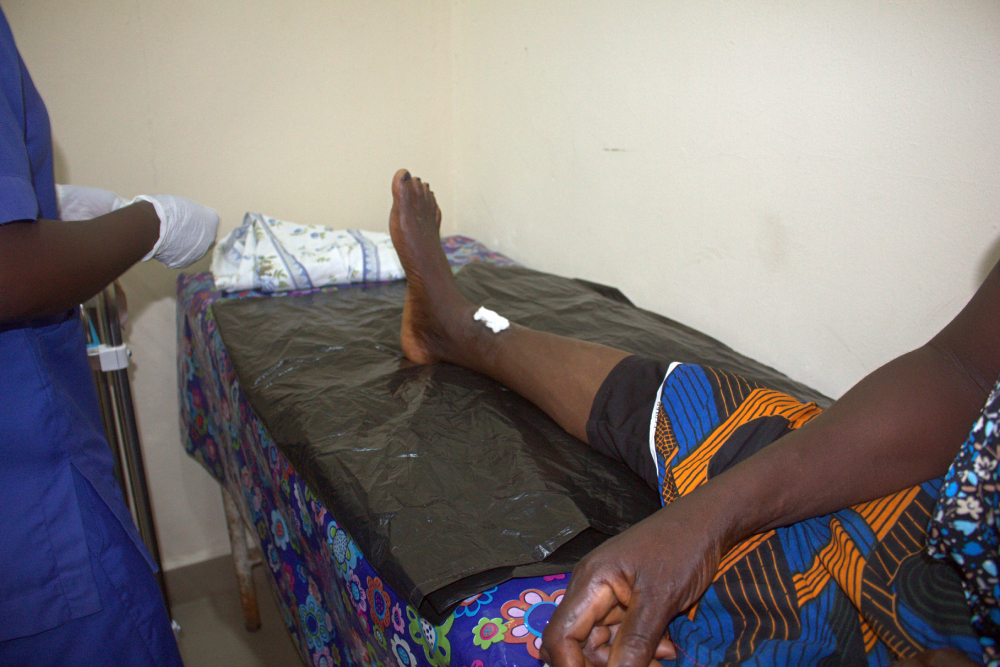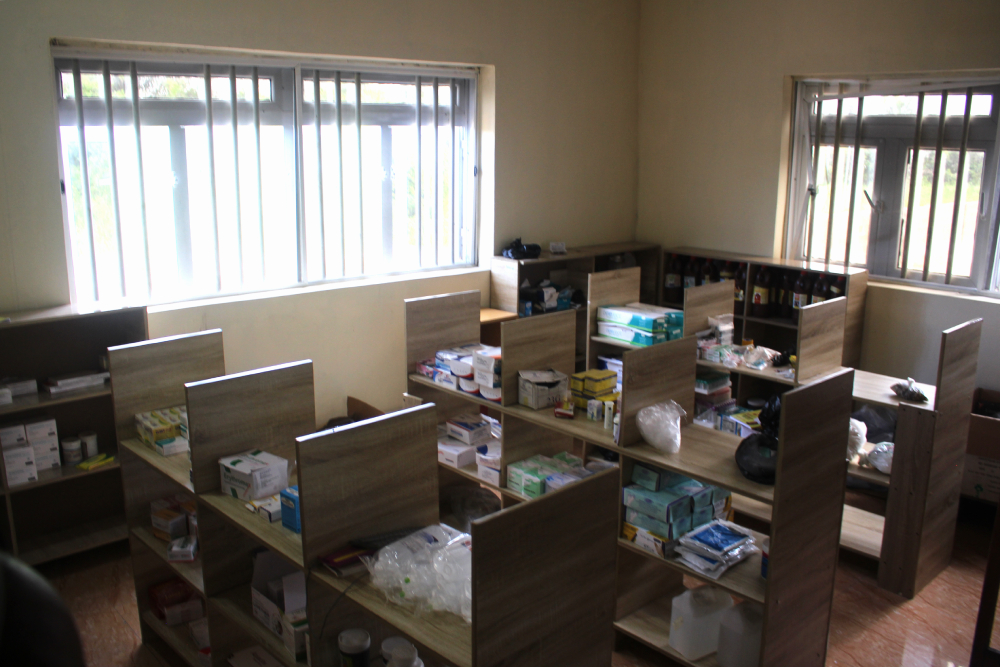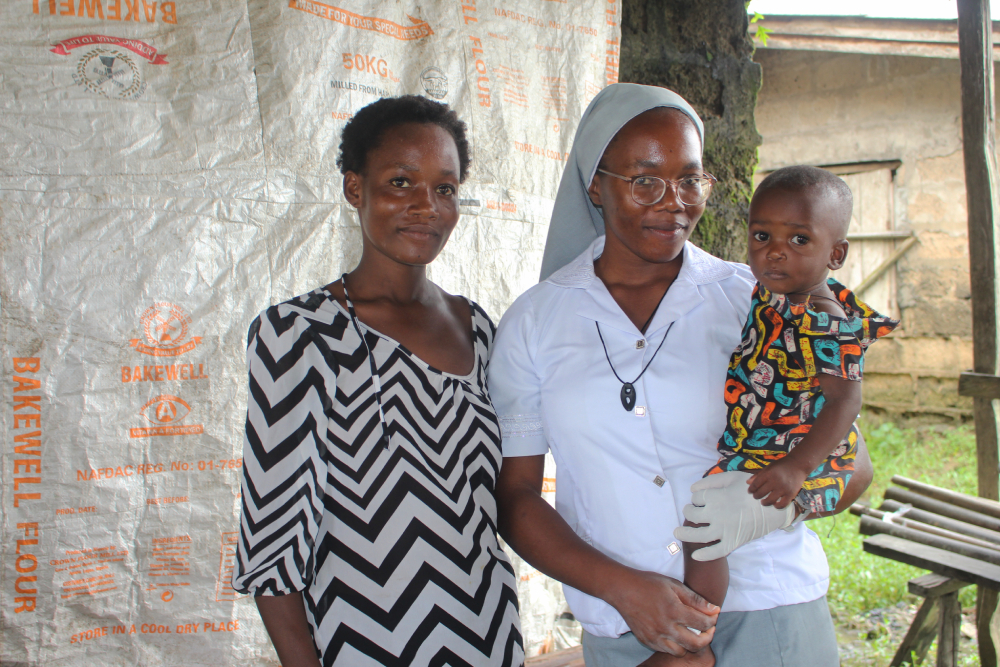
Sr. Janefrances Ihekuna (right) poses for a photo with a nursing mother and her baby after testing them for malaria and HIV during free medical outreach in the community surrounding Torugbene, Nigeria. (Valentine Benjamin)
Sr. Janefrances Ihekuna, a sister of the Medical Missionaries of Mary, is putting everything on the line to raise awareness among the people of Torugbene and nearby waterfront communities in the Bomadi Diocese of Nigeria's oil-rich Delta State. She focuses on essential hygiene practices, such as purifying the water they drink, maintaining personal cleanliness, and promoting the use of sanitary towels for women and girls.
She found her calling to religious life in Catholic schools where the sisters not only taught her, but also served as guiding mentors. Through participation in various church activities, her passion for religious life blossomed.
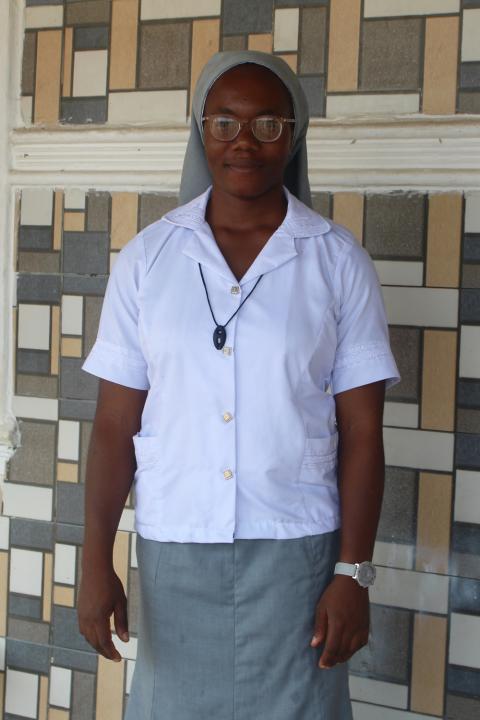
Sr. Janefrances Ihekuna, a nun of the Medical Missionaries of Mary and Administrator for Mary Martin Primary Health Center in Torugbene poses for a photo at the sisters' convent in Torugbene, Nigeria. (Valentine Benjamin)
Born in 1995 as the youngest of four children, Ihekuna hails from Umualum, a clan in Uratta, located in southeastern Nigeria. She completed her elementary education in 2006 and then moved on to Our Lady of Mount Carmel Girls Secondary School in Emekuku, from which she graduated in 2013.
She then enrolled in several courses, including physiotherapy and computer training in graphic design and desktop publishing. But her call to serve God "became more consistent and irresistible."
Under the guidance of her parish priest at Holy Family Catholic Parish in Owalla-Uratta, Ihekuna joined the postulant formation house of the Handmaid of the Holy Child Jesus in Owerri and then moved to their generalate in Ogidi, Onitsha, where she spent three months. During this time, she came across an advertorial flyer for the Medical Missionaries of Mary sisters, which sparked her interest in their congregation, leading her to join in 2019.
Ihekuna is the acting administrator of Mary Martin Primary Health Center in Torugbene, a clinic that provides antenatal care for pregnant women and immunizes babies for polio after birth.
She spoke to Global Sisters Report about her work in these waterfront communities.
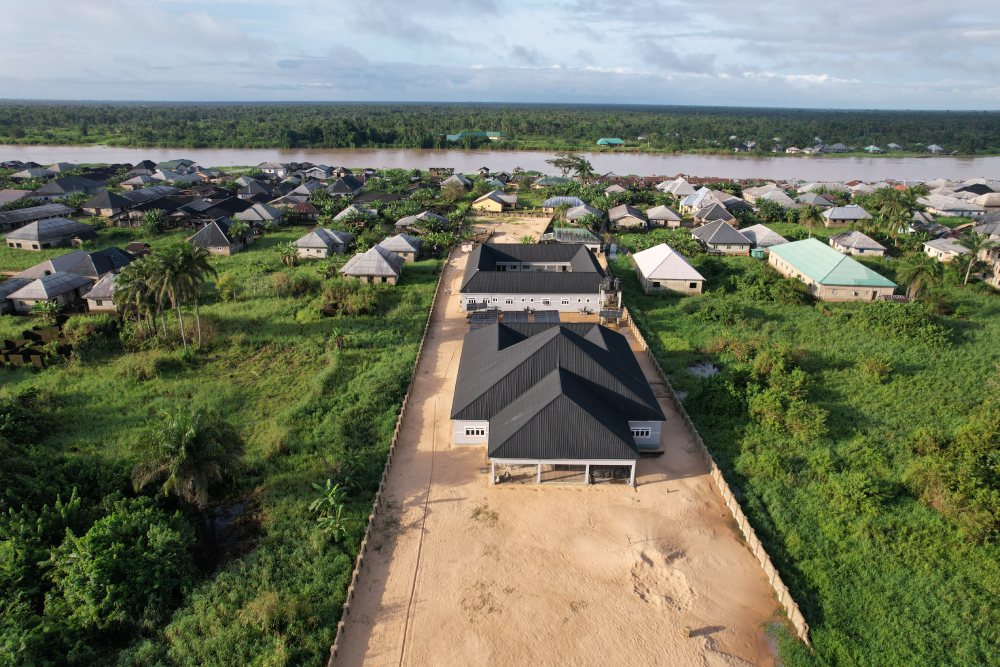
An aerial view of the 12 plots of sand-filled land on which the sisters of the Medical Missionaries of Mary house and clinic are built in Torugbene. (Valentine Benjamin)
GSR: Here in Torugbene, residents practice open defecation, and this, to a considerable extent, pollutes the water, which they bathe in, cook with and drink. How common is open defecation here, and how big of a problem would you say this is for locals who drink from the same water?
Ihekuna: The practice of open defecation has been a major factor contributing to the rise in intestinal diseases we're dealing with. Skin rashes are also prevalent, particularly among children, who frequently come to us covered in rashes. And when we trace the origins of these illnesses, we find that contaminated water is often to blame because they use it for bathing, thereby polluting it.
The community relies solely on just that particular river for its water supply, which raises significant concerns because it's harmful to neonates. When they come to us, we strongly encourage them to boil water for their infants' use, but unfortunately, many do not follow this advice. They often say that this water has been consumed by their forefathers without any issues, so they believe it poses no danger now.
How do you provide this awareness?
We provide awareness through outreach activities. Being a riverine area, we access many of the creeks and communities, such as Fou-Torugbene, BlouTamigbe and Isrealiozion by boat. Our goal is to deliver health care services right to their doorstep, allowing them convenient access to medical care. Most of the time, the communities welcome us, although some individuals express reluctance when we discuss the dangers of the polluted water they consume.
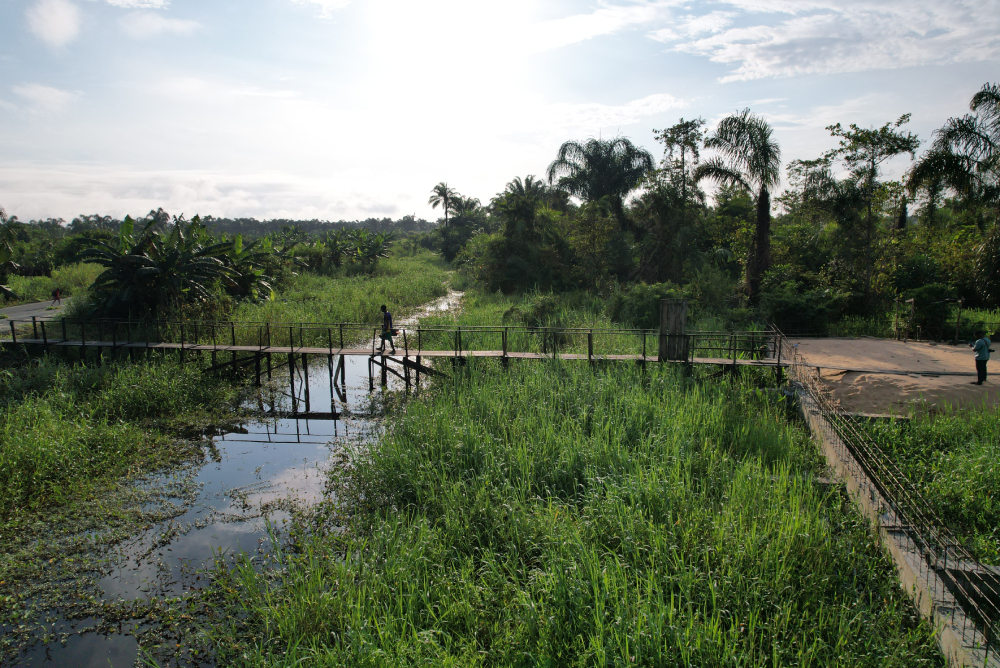
This wooden bridge links the sisters' convent, clinic, and the community. The sisters often go into the community to provide health sensitization and intervention to the residents. (Valentine Benjamin)
Many seem hesitant to accept the information we share, often referencing their forefathers and insisting that this is the water they have always consumed. They believe the flowing water is safe, despite our warnings that pollution occurs upstream, where others may defecate near the source, leading to the contamination that directly affects their drinking supply.
So, we try to educate them about hygiene and proper health care practices and provide first aid to those who require assistance. When we encounter cases that need ongoing attention, we encourage patients to return to the clinic for follow-up. This allows us to manage their situations effectively and ensure they receive the care they need.
What year did you join the congregation and what year did you join this community?
I am a year professed, and I am one year in the community. This is my first mission as a religious inclusive intervention to locals here in Torugbene. We provide various interventions for human well-being. We work with youths, children and vulnerable adults, and health-wise, we try to provide health care to the adults' posts.
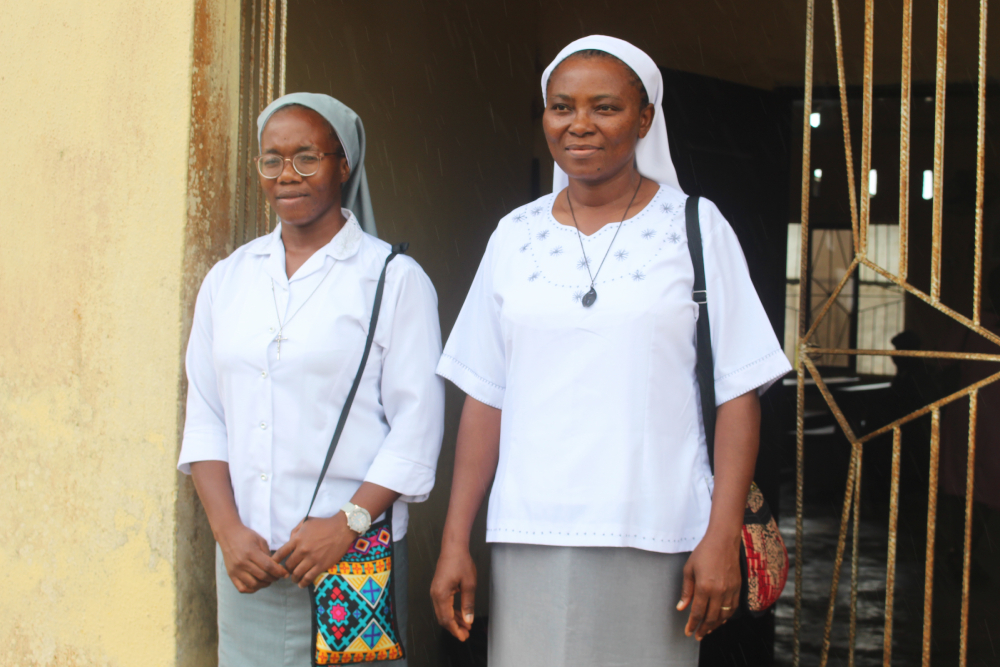
Sr. Janefrances Ihekuna, administrator of the Mary Martin Primary Health Center and Sr. Helen Omeya, acting matron at the health center, pose for a photo after Mass at Immaculate Heart Parish, Torugbene on Sunday, Sept. 17, 2024. (Valentine Benjamin)
We also observe that they don't value health care services, like going to the hospital. They believe more in their traditional healing, and almost every family has a chemist shop. They also drink herbal medicine with concoctions — they prefer them to any other treatment, but only come to us when it's already complicated.
This seems quite like a lot of work. Are you doing it alone?
We have four sisters in total, but one of them is currently studying in Ghana. The three older sisters were recently transferred, and a new sister joined us earlier this year. So right now, it's just the two of us: Sr. Helen Omeya, my community leader, and I are currently running the clinic together. I serve as the administrator and take care of the pharmacy department of the clinic.
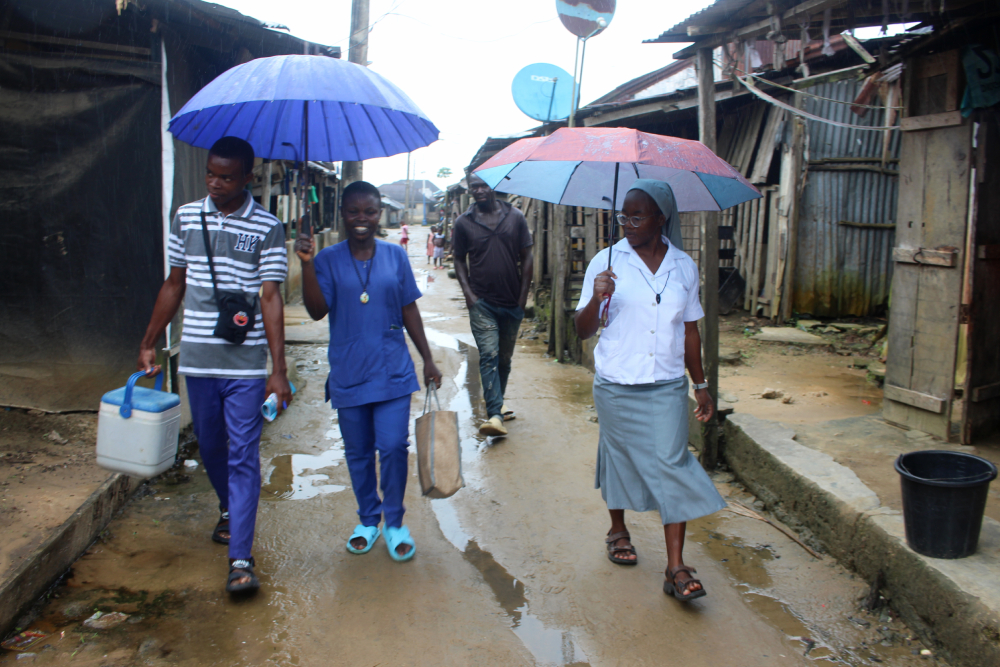
Sr. Janefrances Ihekuna and her team during a free malaria, HIV and syphilis test on a rainy day in Torugbene. (Valentine Benjamin)
We are eagerly anticipating the arrival of two new sisters. With their addition, our community will grow to four members. Currently, we have a dedicated team of staff, including four individuals working at the clinic and three security personnel, bringing our total to seven.
We offer general health care services, including maternity health care. We also have a physiotherapy unit, which I'm in charge of.
How long has this entire program for the locals in Torugbene been running?
It's been nine years since we arrived in Torugbene, and our mission here has focused on improving health care services, addressing teenage pregnancy and overcoming language barriers. We have been actively working on these issues for nearly a decade.
Although I have only been here for a year, the insights shared by the pioneer sisters show that our efforts have been fruitful. From their reflections, along with my observations, I can see that positive changes are happening. This indicates that our interventions are making a significant impact on the community.
Are there challenges you and your team experience delivering these services to the people?
The challenges we face are enormous, but with God's grace, we are managing to push through. Living in a riverine area, we experience annual flooding, which poses a serious threat to our community. Our roads often become impassable, meaning we sometimes have to rely on boats to reach certain areas. We also use monkey bridges, which can limit our mobility during the rainy season.
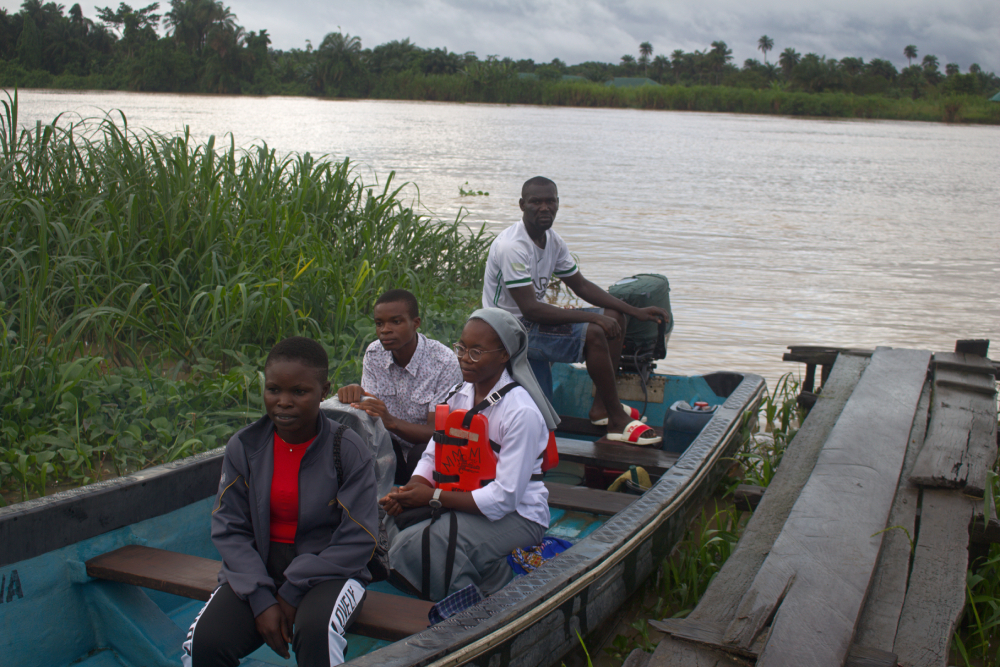
Sr. Janefrances Ihekuna and her team return to a local jetty after their weekly awareness campaign in Fou-Torugbene, a community located 30 minutes by boat from Torugbene. They also take health care services to other communities like BlouTamigbe, Isrealiozion, and Akwaware quarter once a month at a subsidized rate. Free HIV screening is also offered, and the test kits are provided by Our Lady of the Waters Primary Healthcare Center, Bomadi, one of the clinics collaborating with the sisters. (Valentine Benjamin)
We also deal with language barriers. The local population predominantly speaks Ijaw, and many residents struggle with English. To address this issue, we have initiated a program called the Reading Club. Through this initiative, we educate young people, teaching them how to read, write and speak in English, to enable them to communicate and interact with English speakers when they encounter them, significantly benefiting their social connections.
Advertisement

